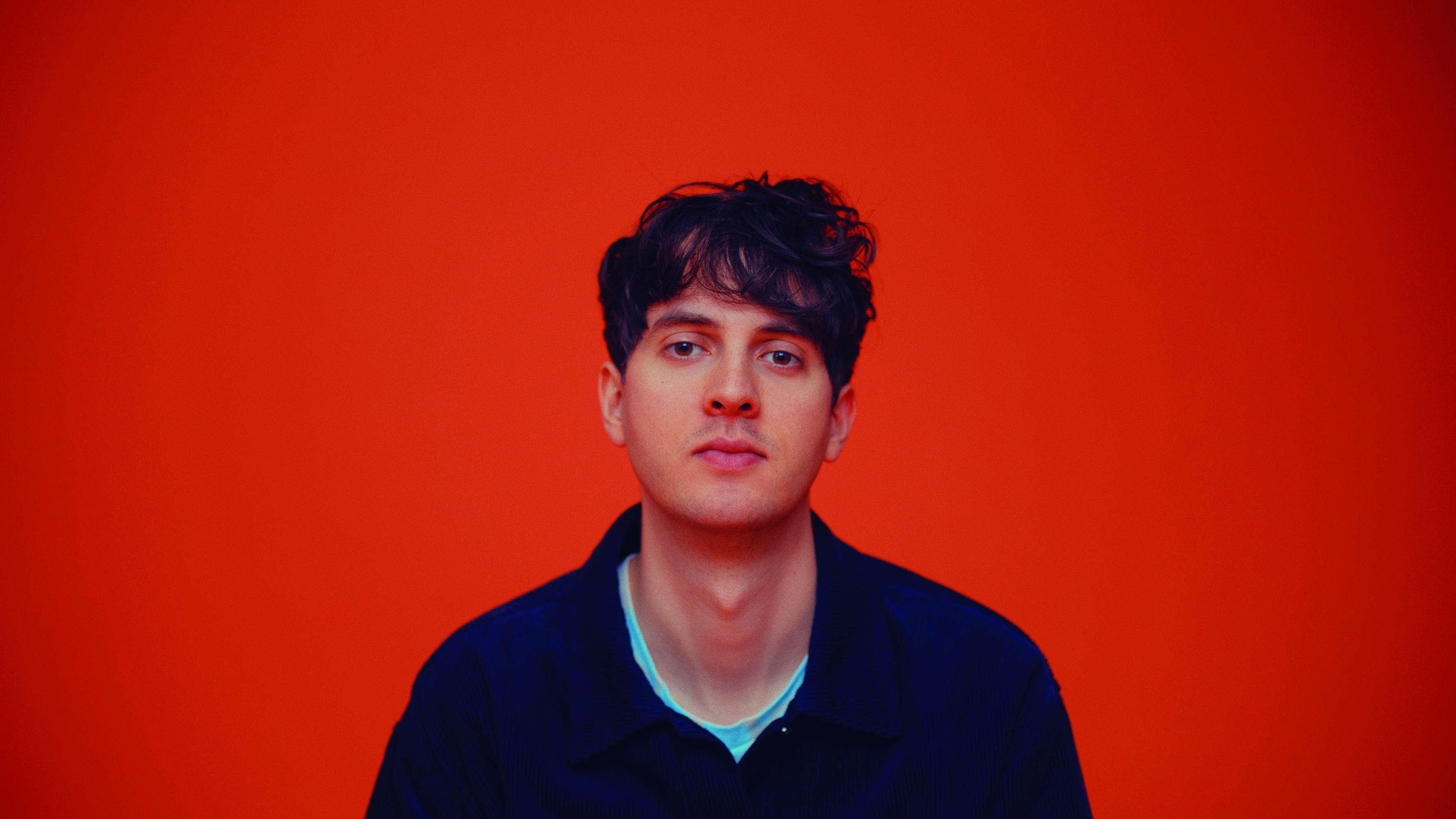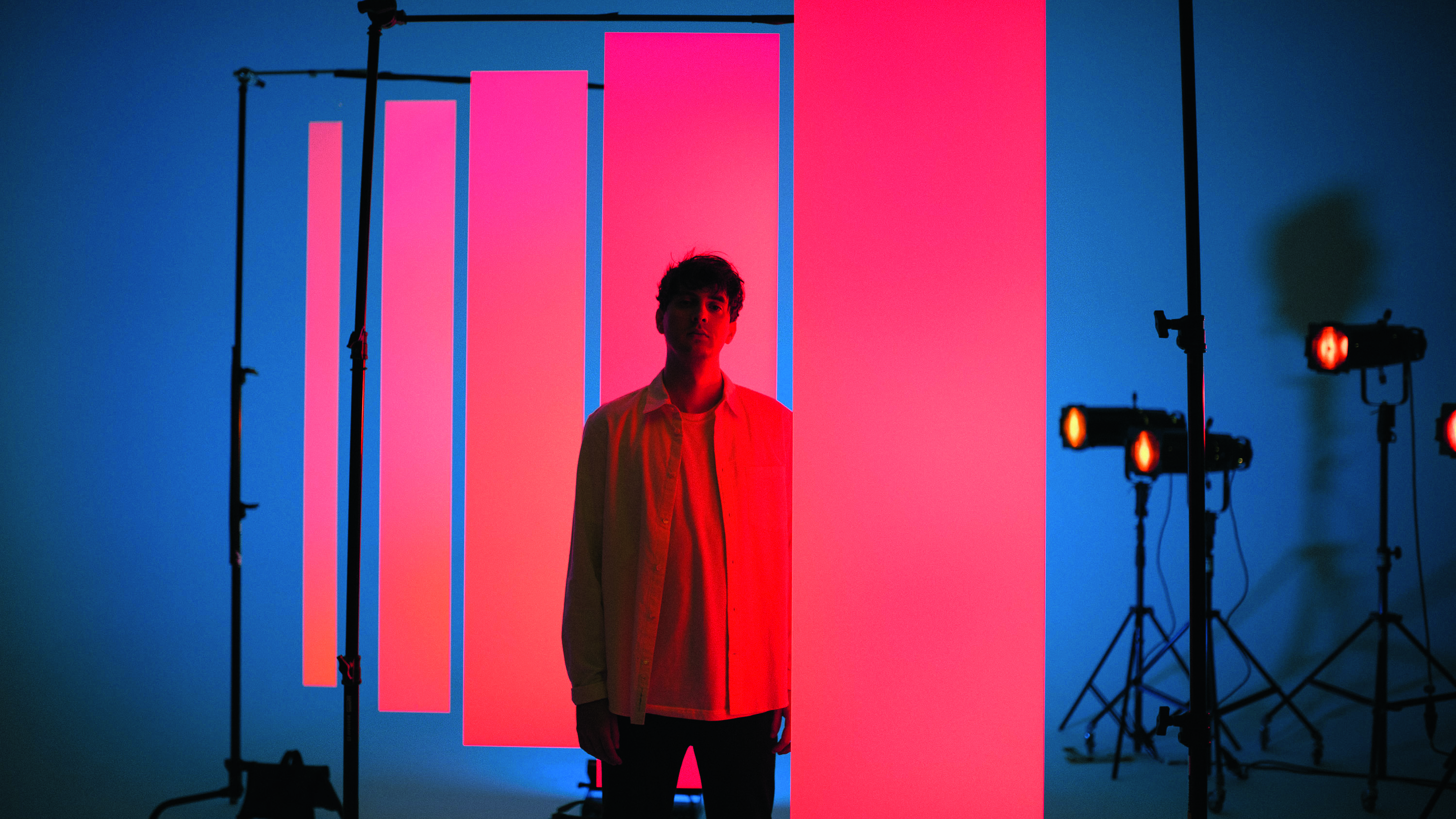15 questions for... Roosevelt: “The more time I spend on producing music, the more I realise how important it is to feel joy and some form of euphoria while making it"
After lighting up dancefloors and charts with his slick electronic and vocal productions, Marius Lauber, aka Roosevelt, has returned with his third album, Polydans. Time to talk tech and how to let your plugins fight…

Since 2013, Marius Lauber has been producing a slick fusion of electronic and guitar-laden dance, songs that have lit up charts on albums including Young Romance and his debut, self-titled Roosevelt.
This year he returns with Polydans, his third LP which features the single Sign (which has already notched up 600,000 plus YT plays) the video of which also features Marius as part of a modular synth. Which of course we love…

1. Tell us how you got into music production in the first place?
“I started producing my own tracks as Roosevelt when I was around 21, having just moved to Cologne. Electronic music and the local scene became a bigger part of my influence back then. I did, however, try to mix my productions with vocals, guitars and synth melodies. When I play live I am usually performing the recordings as a 4-piece band.”
2. When did you start to feel you were getting somewhere”?
“I’d say there hasn’t been a definitive moment in my career. However, with the release of my debut album in 2016, I could feel that something changed. We just suddenly weren’t the support act anymore but played our own headline shows around the world.”
3. What is your overall philosophy or approach when it comes to music?
Want all the hottest music and gear news, reviews, deals, features and more, direct to your inbox? Sign up here.
“The more time I spend on producing music, the more I realise how important it is to feel joy and some form of euphoria while making it. Although it can feel like a battle trying to finish a track, I’m always led by what’s the most fun to me in the moment.”
4. Tell us a little bit about your ‘computer music’ history?
“I started using GarageBand when I was playing in school bands in my teenage years. Since then I have been using Apple DAWs and I’ve been on Logic now for 10 years. I have a Mac Pro running Logic and a UAD Apollo is still the centrepiece of my studio. However, I’m also now running a hybrid system with some outboard gear and a lot of instruments.”
5. Tell us about the rest of your studio
“Recording a Roosevelt album always feels more like recording a rock band than having an electronic music project. The computer’s mostly just there to track instruments and transform the sound with effects. I don’t use any sequencers, try to avoid MIDI as much as possible, and try to create the sound including effects and compression before it hits the preamp or microphone.”
6. What are your favourite plugins?
UAD Thermionic Culture Vulture. “I actually own a hardware Culture Vulture, but the plugin is just too good. It’s not quite the same when you crank it up a lot (the hardware unit starts to create some insane harmonic distortion), but in a lighter setting, both the plugin and the hardware unit can bring a signal to life!”
Oeksound Soothe & Spiff. “These are absolute game-changers for me. I use them on things like overheads, percussion and vocals. The built-in KI that detects the frequencies is insanely good. It helps you get rid of annoying frequencies without destroying the dynamic of the signal.”
Robotic Bean Hand Clap Studio. “I actually saw this one in a Disclosure video. It gives you real handclaps with a lot of options. It’s super easy to use and I’m not sure if I’m ever gonna record claps again in the future.”
XFer Records OTT. “A friend just showed me this and it blew me away. I think it’s based on a particular setting in the Ableton Live compressor called Over The Top. It runs parallel so you can set the amount from 0-100%. I’m using it a lot on keys and also on the mix bus.”
XLN Audio RC-20. “Ernest, aka Washed Out, recommended me this a while ago and since then it’s been my go-to plugin to give things a vibe that sounds too clean and flat. I actually have it on my mix-bus as well with some iron distortion. It makes the mix sound less hi-fi and it instantly sounds more like a record rather than like a demo.”
7. How do you tend to start a track?
“It really changes a lot and there’s no real formula, but I’m mostly starting with some kind of rhythm and a bassline. As you can hear in my tracks, the bassline is never just functional, it always has a melodic approach.”
8. How do you know when you have finished a track?
“When I realise that the changes that I’m doing are purely audiophile and don’t change anything to the vibe or emotion of the track. My advice would be to trust your ears. Real iconic tracks from the last decades never have a ‘perfect’ mix, so focus on what touches you rather than trying to sound perfect.”
9. Do you have any production tricks?
“I sometimes do this weird thing of letting two plugins ‘fight’ with each other. It’s something I didn’t even plan, but since I’m an autodidact and never learned how to produce music, these things happen a lot. I would put an amp simulation with no top-end at all on something, only to boost the high-end with an EQ around +30dB afterwards. Or I would gate a signal heavily, only to boost the sustain with an SPL Transient Designer after that. Sometimes these counter-intuitive decisions make up for a unique signature sound, that you couldn’t recreate any other way.”
10. Who else have you worked with?
“Kat Frankie is doing backing vocals on a lot of tracks on the new album. I feel like my voice is quite limited in its range and for a hook to really work, and so it needs to be supported by another tonal colour. She really added a lot to some of these songs. Also Kaiser Quartett, a string quartet that’s based in Hamburg, played a string arrangement on Strangers. It was super exciting to have a full string recording on the track and a bit nerve-wracking to manage the mixdown for it.”
11. What’s on the top of your personal wish-list studio gearwise?
“I’d love to own an SSL G Console at some point in the future. It doesn’t really make sense for me at this point, but it’s definitely on my wish list.”
12. What advice have you picked up from playing live?
“Try to make the live experience different to what your records sound like. People don’t go to concerts to hear the same recording as on the album. Have fun with it!”
13. And from working in the studio or from the industry?
“Trust your ears! Don’t think you need expensive gear to sound good. I love buying stuff for my studio, but I still think I could have done the same record on a MacBook with some headphones and good plugins. The gear is mostly just there to make the process more enjoyable and to get some happy accidents.
"Don’t start a career in music to make a lot of money. There are so many incredibly talented producers and musicians that can’t make a living. The industry is not really fair in that regard. However, it’s easier than ever to find your niche audience and to get a standing in a particular scene without a big label.”
14. What would you like to see developed in terms of studio technology?
“I’d love to see gear that makes it easier to involve an analogue workflow in your DAW. I’m running a hybrid system now where I’m inserting several types of outboard gear, but it’s not really easy to manage in terms of latency and gain-staging.”
15. And what else do you have planned?
“The album Polydans is what I’ve been working on over the last months in my studio. It reflects a lot of different styles of dance music and their influence on me. As so many other artists, I would be touring with my band right now and I’m using the time to work on new material. We’re prepared to be touring as soon as it’s allowed and safe again, but until then I’m trying to make the best out of the free time and I’ve started working on the follow-up album.”
The new Roosevelt album Polydans is out now on Greco-Roman/City Slang.


Computer Music magazine is the world’s best selling publication dedicated solely to making great music with your Mac or PC computer. Each issue it brings its lucky readers the best in cutting-edge tutorials, need-to-know, expert software reviews and even all the tools you actually need to make great music today, courtesy of our legendary CM Plugin Suite.
